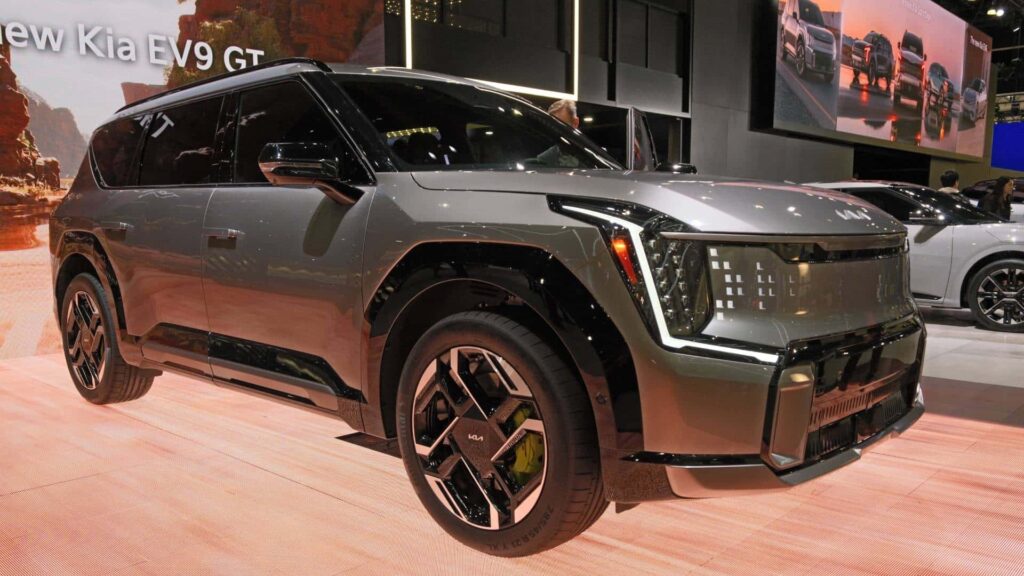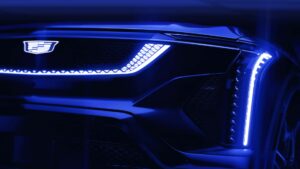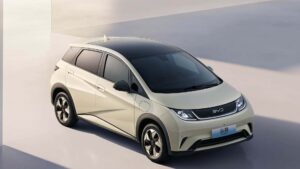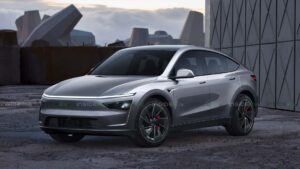
- Kia America’s COO said that eliminating the tax credit for EV purchases would be “messed up.”
- Kia and other carmakers have made large investments to comply with the credit’s rules, so killing it would be “pulling the rug out” from under the auto industry.
- He said the change would “hurt,” but it wouldn’t crush EV sales.
As Kia and its parent company the Hyundai Motor Group plan an onslaught of new U.S.-made electric vehicles aimed at winning American converts, the potential threat of losing the electric vehicle tax credits is like a dark cloud hanging over everything. But one senior Kia executive at the LA Auto Show said what the rest of the auto industry is all but certainly thinking right now: President-elect Donald Trump’s plan to kill the EV tax credit would be disruptive to jobs and the trajectory of the entire American car business.
“It would just be dumb,” Kia America COO and Executive Vice President Steve Center told InsideEVs in an interview on Thursday. “[The government has] steered the industry in a direction, and I think you need to allow the industry to recover its investments and then let it float.”
The South Korean automaker has invested heavily to bring manufacturing of its EV6 and EV9 electric models to Georgia, in part to comply with the $7,500 purchase incentive’s North American assembly requirement. It’s adjusted supply chains to meet restrictions around battery and component sourcing for qualifying vehicles. While current Kias aren’t eligible, some upcoming 2025 models built in the U.S. should be. The same is true at Kia’s corporate cousin Hyundai, which is aiming to entice American buyers to go electric with U.S.-made cars like the Ioniq 5 and new Ioniq 9.

Photo by: InsideEVs
Now Hyundai Motor Group and other carmakers are staring down a future where massive investments in EV models and domestic EV manufacturing are worth less. Various analyses have found that U.S. demand for electric cars would drop without the incentive; the same has happened in places like Europe as well. That would be extremely disruptive to an industry that’s invested a lot of money and long-term plans into electrification, Center said.
“You’re pulling the rug out from under the whole industry. And quite frankly, it isn’t just Kia and the import brands,” he said. “A lot of other companies have spent a lot of money trying to comply with the regulations.”
He said the Inflation Reduction Act, the landmark climate law that included the latest revision to the EV tax credits, has created jobs and supported the environment.
“It’s just bad policy to keep changing. So you don’t like it? Pick on something else you don’t like that isn’t going to hurt the biggest industry in the country,” Center said.

Reuters this month reported that the Trump transition team is drawing up plans to eliminate the credit as part of broader tax reform, sending shockwaves through the EV industry. The provision aims to drum up demand for battery-powered cars and also to wean the U.S. auto industry off of Chinese battery supply chains.
Trump would need Congress, which now has a Republican majority, to cooperate here. But it’s still yet to be seen whether the plan will withstand pressure from the auto industry and from lawmakers whose constituents benefit from new EV factories and jobs. It’s also unclear whether Trump plans to attack the commercial clean-vehicle credit, which subsidizes EV leases.
Following the Reuters report, the Zero Emission Transportation Association, a trade group representing EV and battery companies, released a statement defending the policy. “If the U.S. is going to continue to fight to bring those jobs here and actually compete to win against China, there needs to be a demand signal—like the New Clean Vehicle Tax Credit—aligned with that goal, otherwise we would be undercutting those investments and hurting American job growth,” said Albert Gore, the group’s executive director.
The Alliance for Automotive Innovation, the auto industry’s largest lobbying group, urged Congress in October to keep IRA policies intact so its members can stay competitive with China as the global car market electrifies.
The change in policy could deal a blow to EV sales, Center said. But at the same time, it’s not a doomsday scenario.
“It’s bad. It will hurt. Is it going to kill everything? I don’t think so, because people are buying these cars, and they’re leasing these cars,” he said. “It’s a sweetener. It aids mass adoption.”

At the moment, Kia doesn’t sell any vehicles that qualify for the buying credit, though it plans to. Its customers can benefit from the $7,500 leasing incentive, which doesn’t enforce eligibility or manufacturing requirements for vehicles.
Getting rid of the EV purchase incentive may not have a huge impact in part because of the policy’s household income requirements, Center said. Plus, charging infrastructure is still the main barrier to adoption, in his view.
He said that if the administration kills the tax credit, they should at least do so gradually. “It’s messed up,” Center said. “But I would say if you must eliminate it, have a ramp down.”
Contact the author: tim.levin@insideevs.com



